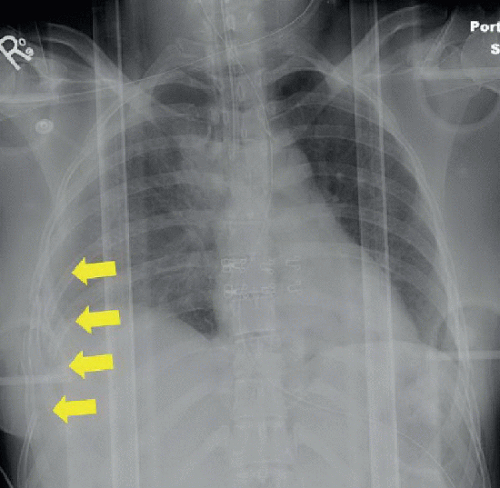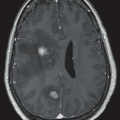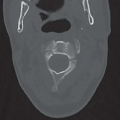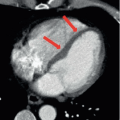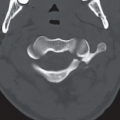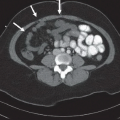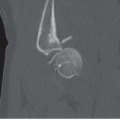Flail Chest
Peter J. Noone
Katherine R. Birchard
CLINICAL HISTORY
29-year-old female in rollover motor vehicle accident with paradoxical respiratory movement of a portion of right chest wall.
FINDINGS
Figure 26A: Anteroposterior supine chest film with patient on a backboard shows displaced fractures of right 5th, 6th, 7th, and 8th posterolateral ribs (yellow arrows), with each rib being fractured in more than one place. Endotracheal tube and nasogastric tube are in place.
DIFFERENTIAL DIAGNOSIS
Simple rib fracture, flail chest, lung herniation.
DIAGNOSIS
Flail chest.
DISCUSSION
Flail chest is a condition that occurs after blunt chest wall trauma. Multiple fractures of three or more contiguous ribs or simple fractures of four or more contiguous ribs result in a segment of the chest wall that moves independently of the rest of the chest wall (a flail segment). This results in paradoxical movement of this segment, resulting in decreased ventilation, increased risk of atelectasis, and impaired pulmonary drainage. Flail chest is often evident on physical exam, and plain film radiography is conformational. Findings can include multiple fractures of three or more contiguous ribs, or single fracture of four or more contiguous ribs. Associated findings can include extrapleural hematoma (presenting as focal, peripheral, lobulated areas of abnormal opacity on plain film), pulmonary contusion (patchy air space opacities that do not follow anatomic boundaries), and pulmonary laceration.2,4 Another possible complication of flail chest is herniation of the lung through the flail segment. The risk of this complication is increased if the patient is on positive pressure ventilation, and is best visualized with CT if suspected. The herniated segment can strangulate, requiring surgical correction.
Stay updated, free articles. Join our Telegram channel

Full access? Get Clinical Tree


